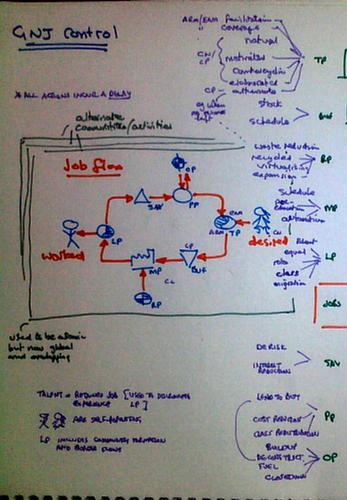The victorious strategist only seeks battle after the victory has been won. – Sun Tzu
What does that mean?
This is another Twitter friendly quote, which at full length is as follows: “Thus it is that in war the victorious strategist only seeks battle after the victory has been won, whereas he who is destined to defeat first fights and afterwards looks for victory.”
This is a classic, both in age and in substance. The quote starts discussing the strategy of the victorious strategist. They examine the strengths and weaknesses of their opponent, as well as the terrain, weather, morale, food supplies, and any other factors that might impact the outcome. Only then, with as reasonable a certainty of victory as is possible, do they attack. Victory then follows as the most likely outcome.
The other side of the coin is the defeated first rushes into battle, then starts to look for a way to win. If both sides follow this path, you will not have great victories, unless you also have great luck. Unfortunately, that is what too many people do, in war, love, and life in general.
Why is thinking ahead important?
Whether you call it thinking ahead, planning, or strategizing, there are benefits to taking your time and getting it right the first time. Yes, there are always unpredictable events in life. You won’t be able to plan for everything. You won’t always know what you don’t know, and therefore, didn’t plan for.
On the other side, there is analysis paralysis, where all your effort goes into planning, and you never go to battle. That’s no way to get things done, as you will lose by default, unless the other person is just as wrapped up in their planning.
So there is in strategy, as in most of life, both too much and too little. The trick is determining where the line is in each situation, because they’re all a little different, right? But, eventually you have to decide if you’re just going to cut bait (prepare bait for a fishing trip) or go fishing. Yes, one has to be done first, but again, balance is the key.
Where can I apply this in my life?
For the purpose of this quote, I want to focus on the areas where you might be able to find use for a little more planning (and clarity), rather than focus on the details of how to come up with a plan. If you need help with that, see this post, this post, this post, this post, this post, and this post for details on all kinds of ways to do planning.
So, grab some paper and start writing down what areas in your life you tend to rush, not plan as much as you could, or fail a lot due to unforseen factors. Those are clues that you haven’t won the victory before you charged into battle, right?
Think of all the different roles you play. Work, family, friends, social organizations, whatever else you might do, think about when you’ve gone to do something, but not had the victory you expected. Add these to the list.
Are there any things you’re working on that aren’t working out the way you thought they should? A project car that’s deep into it’s second decade? A back yard that still needs some work, or is it the front yard? Those might also be clues, right?
Take a moment and consider each item on the list. What went wrong in each of them? Not the specific action that messed things up, but did you fail to plan, did you not do enough research, did you not comprehend the true scope of the activity? Were you in over your head, without a mentor or a lifeline?
See if there is a pattern to your underlying causes for the lack of victory. In my case, there were two. First was a tendency to plan things to death and never take to the field. The other was to fight too many battles at the same time, and the best plan in the world is pretty much useless unless you actually put it into practice, right?
What are you going to do to help yourself with thinking ahead, without going overboard and thinking too much? Do you get a ‘gut’ feeling that it’s time to get busy? Do you work up to a certain level of confidence and then charge ahead?
Once you have a feel for what you need to work on, it’s just a matter of keeping after it. As your first step, I would recommend you mark your calendar for one month, three months, six months, nine months, and a year from now as checkups for your progress.
Now you have a plan for improving your ability to strategize, and have taken a step to make it happen. You’ve also set up accountability, and can revisit what has worked well and what hasn’t. With that information, you can adjust your strategy and try again for the next trial period.
From: Twitter, @JacquesMemoirs
confirmed at : http://www.brainyquote.com/quotes/quotes/s/suntzu123501.html
Photo by Julian Partridge








Reblogged this on CartierJournal and commented:
My favourite quote, a great analysis
Reblogged this on FILOSOFISK.